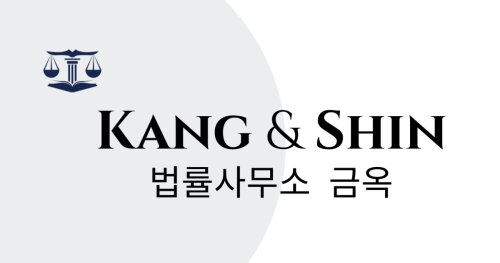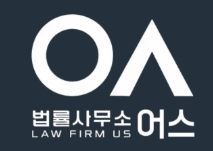Best Wage & Hour Lawyers in South Korea
Share your needs with us, get contacted by law firms.
Free. Takes 2 min.
Or refine your search by selecting a city:
List of the best lawyers in South Korea
About Wage & Hour Law in South Korea
Wage & Hour laws in South Korea are designed to regulate the conditions of employment, ensuring that workers are paid adequately for their labor and work hours are kept within reasonable limits. The Labor Standards Act is the primary legislation governing these matters, establishing minimum wage standards, maximum working hours, rest periods, and conditions for overtime work. South Korea has strong labor protections to improve working conditions and address the challenges posed by a highly competitive work culture.
Why You May Need a Lawyer
There are several situations where legal assistance may be necessary in the field of Wage & Hour in South Korea:
- Disputes over unpaid wages or wrongful deductions from pay.
- Alleged violations of the maximum working hours or insufficient rest periods.
- Issues related to unpaid overtime or incorrect calculation of overtime wages.
- Disagreement over the conditions of employment or unfair dismissal claims.
- Instances of wage discrimination or non-compliance with the minimum wage laws.
- Preparing contracts or legal documents to ensure compliance with labor laws.
Local Laws Overview
Below are key aspects of the labor laws related to Wage & Hour in South Korea:
- Minimum Wage: The legal minimum wage in South Korea is reviewed annually and is applicable to all employees, regardless of employment status.
- Working Hours: The standard working hours are limited to 40 hours per week, with a maximum of 8 hours per day. Employees are entitled to a weekly rest day.
- Overtime: Any work performed beyond the standard working hours is considered overtime and must be compensated with additional pay, typically at 150% of the regular wage.
- Night and Holiday Work: Additional compensation is required for work done at night (between 10 PM and 6 AM) and on public holidays.
- Leaves: Employees are entitled to various forms of leave, including annual leave, sick leave, and maternity leave, with specific provisions regarding pay and duration.
Frequently Asked Questions
What is the current minimum wage in South Korea?
The minimum wage in South Korea is adjusted annually. It is important to check for the most recent update, typically announced by the Ministry of Employment and Labor.
How are overtime wages calculated?
Overtime work is paid at 150% of the normal hourly wage. There are additional rates for night work and public holiday work.
What are the maximum working hours allowed per week?
The maximum working hours are legally set at 40 hours per week, with an upper limit of 8 hours per day.
Can employers make deductions from wages without consent?
No, deductions from wages without the employee’s consent or without a legal ground are not permitted under South Korean labor law.
What conditions apply to part-time workers regarding wage and hours?
Part-time workers are entitled to the same wage and hour protections as full-time workers, including minimum wage, overtime pay, and appropriate rest periods.
Are there different wage rules for foreign workers?
Foreign workers in South Korea are subject to the same minimum wage and labor protections as local employees.
How can an employee file a complaint about unpaid wages?
Employees can file complaints with the local labor office or seek assistance from the Ministry of Employment and Labor to resolve wage disputes.
What legal steps can I take if I am unfairly dismissed?
If you believe you have been unfairly dismissed, you may file for reinstatement or compensation through the Labor Relations Commission or seek help from a labor attorney.
Is it legal to work on a contractual agreement that circumvents labor laws?
Contracts that contravene the provisions of the Labor Standards Act are deemed invalid, and standard labor laws will prevail.
Are employers required to pay for work done during lunch breaks?
Lunch breaks are not typically paid. However, if the employee is required to work during lunch, compensation should be provided.
Additional Resources
Here are some resources that might be helpful for individuals seeking guidance on Wage & Hour issues in South Korea:
- Ministry of Employment and Labor: Provides detailed information about labor laws, including updates on the minimum wage and workers’ rights.
- Labor Relations Commission: Assists in resolving labor disputes, including those related to wages and working hours.
- Legal Aid Centers: Offer free or low-cost legal advice on employment issues.
- Korean Bar Association: Provides a directory of lawyers specializing in labor law.
Next Steps
If you require legal assistance regarding Wage & Hour issues in South Korea, consider the following steps:
- Document all relevant information, including pay slips, employment contracts, and communication with your employer.
- Consult with a labor attorney to evaluate your case and understand your legal rights.
- Contact the Ministry of Employment and Labor for advice and assistance in filing a complaint if necessary.
- If your issue involves a dispute resolution, consider mediation services provided by the Labor Relations Commission.
Lawzana helps you find the best lawyers and law firms in South Korea through a curated and pre-screened list of qualified legal professionals. Our platform offers rankings and detailed profiles of attorneys and law firms, allowing you to compare based on practice areas, including Wage & Hour, experience, and client feedback.
Each profile includes a description of the firm's areas of practice, client reviews, team members and partners, year of establishment, spoken languages, office locations, contact information, social media presence, and any published articles or resources. Most firms on our platform speak English and are experienced in both local and international legal matters.
Get a quote from top-rated law firms in South Korea — quickly, securely, and without unnecessary hassle.
Disclaimer:
The information provided on this page is for general informational purposes only and does not constitute legal advice. While we strive to ensure the accuracy and relevance of the content, legal information may change over time, and interpretations of the law can vary. You should always consult with a qualified legal professional for advice specific to your situation.
We disclaim all liability for actions taken or not taken based on the content of this page. If you believe any information is incorrect or outdated, please contact us, and we will review and update it where appropriate.
Browse wage & hour law firms by city in South Korea
Refine your search by selecting a city.















